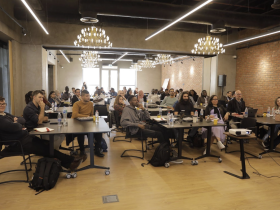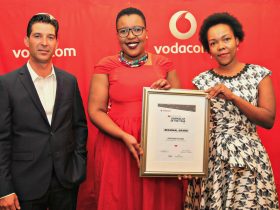The theme of this year’s International Literacy Day, “Transforming Literacy Learning Spaces”, presents an opportunity to rethink the fundamental role that learning spaces play in ensuring quality, equitable, and inclusive education for all.
Since the dawn of democracy in South Africa, literacy rates have been on the rise. In 1996, the literacy rate in South Africa was 82.4%, according to World Bank data. In 2019, the World Bank said, this rate had jumped to just over 95%.
This rise is something to be celebrated. However, there are still gaps that exist—particularly when it comes to adult literacy.
An adult literacy fact sheet published by the Department of Higher Education and Training (DHET) in 2020 put the adult literacy rate in South Africa at 10%. While this figure represented an 8.6 percentage point improvement over the previous decade, it remains concerning that 3.7 million adults in South Africa were still illiterate 26 years after democracy.
We are continuing to address this challenge in 2022. And as a workforce training provider that has years of experience in adult literacy, we believe that one of the primary means of boosting adult literacy rates involves taking a closer look at our learning spaces and delivering better learning through more affordable technology.
Flexible but dedicated learning spaces
At Optimi Workplace, we regularly teach adult learners in many far-flung places. Often, there is a lack of dedicated spaces in these areas, which means we have to introduce our ‘plug-and-play’ solutions, such as our mobile learning containers.
These containers are flexible and movable, as well as dedicated training and learning spaces, and come equipped with all the necessary infrastructure. This combination—of flexibility and consistency—is something we often underestimate in South Africa, but it is a basic and vital ingredient to ensuring improved access to learning in our country.
We also bring these movable spaces to where learners are situated. This is important because adult learners have schedules and responsibilities during the week that make travel difficult or impossible. Coming to where they are makes a meaningful and sustainable difference to their lives and ensures that learning takes place.
With the advent of Covid-19, we also had to improve our online learning capabilities, and implemented a hybrid approach that has become part and parcel of our modern learning environment. Where we can’t send a container, we opt for online, which brings me to the next critical ingredient we need to get right: affordable data access.
Data prices must still fall
While there have been advances in recent years in terms of opening up more radio spectrum for mobile networks and bringing down the cost of data, there is still a long way to go.
According to a recent article by the World Economic Forum, South Africans pay up to R85 ($5.29) per GB of data, at “a cost equivalent to nearly four hours work for people earning the minimum wage”.
The article goes on to say that this compares with about $1.53 per GB in North Africa and $2.47 in Western Europe. The article sources its figures from the Ichikowitz Family Foundation.
We’ve seen this challenge firsthand in our endeavours to train South Africa’s adult population, and have found that data prices continue to be a major stumbling block to unlocking learning opportunities.
To address this issue, providers such as ourselves try to work with mobile networks to zero-rate certain educational services. We have also made a substantial portion of our content available offline, which minimises the need for data.
The longer-term solution to this issue, however, lies in ensuring that there are better options in our mobile network landscape and that pricing is competitive. If more South Africans can access the internet, they can access the multitude of educational benefits it provides.
In South Africa, transforming literacy learning spaces involves taking a holistic view of our unique set of challenges and developing tailored and effective interventions to address them. If we do so, we can begin to give our adult learners the educational—and economic—opportunities they so richly deserve.




























Leave a Reply